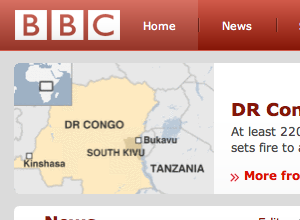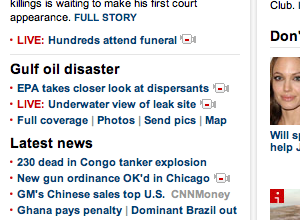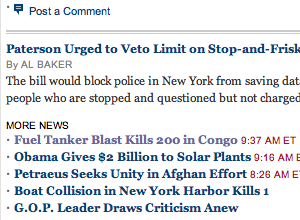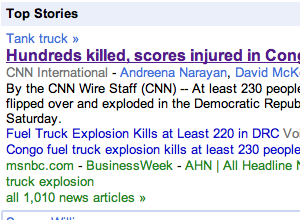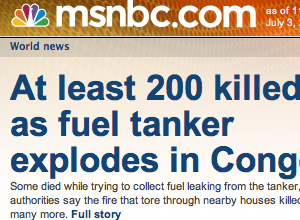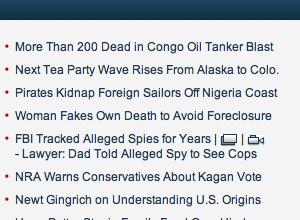U.S.: Snaps: Iowa’s broken Lake Delhi dam – a major flyover state story
- After the Tennessee flooding in may, the mainstream media was criticized. Why? Because they underplayed a major tragedy that affected a lot of people – but people in a smaller state not on the East or West Coast. So, with that in mind, here’s a quick comparison of the coverage the dam breakage in Iowa has been getting so far. As of 8:29 p.m. EST, it’s not on the Reuters or BBC front pages at all. The New York Times only just put it up moments ago, and they’ve buried it. How about other sites?
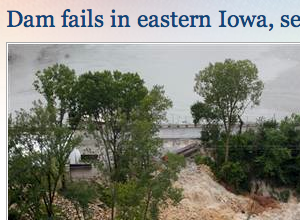 MSNBC: Main imageIt’s the lead story at MSNBC, complete with a very dramatic photo to top it all off – pretty much the kind of play you’d expect.
MSNBC: Main imageIt’s the lead story at MSNBC, complete with a very dramatic photo to top it all off – pretty much the kind of play you’d expect.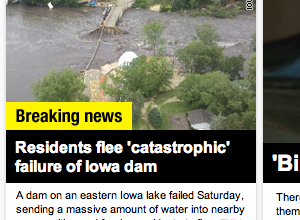 CNN: Lead story (Breaking news)CNN appears to be pulling out all the stops for this story, asking for reader reaction to go with the photos on the site.
CNN: Lead story (Breaking news)CNN appears to be pulling out all the stops for this story, asking for reader reaction to go with the photos on the site.
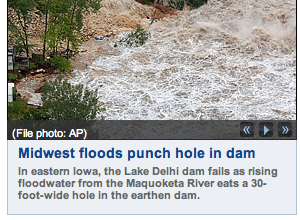 Washington Post: Lead imageIt seems like it might initially easy to miss, but the story, complete with dramatic photos, is on the front of the site.
Washington Post: Lead imageIt seems like it might initially easy to miss, but the story, complete with dramatic photos, is on the front of the site.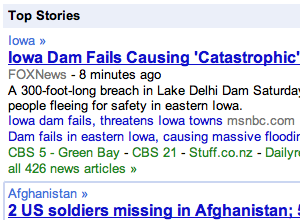 Google News: Lead itemGoogle’s algorithms put it right up top, with the oil spill and the Afghanistan story. Earlier today, the German festival stampede was up top.
Google News: Lead itemGoogle’s algorithms put it right up top, with the oil spill and the Afghanistan story. Earlier today, the German festival stampede was up top.
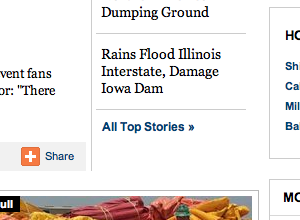 AOL News: Secondary leadThe site we occasionally freelance for chose to go with stampede at the German festival instead of the flooding as lead, though it’s up there.
AOL News: Secondary leadThe site we occasionally freelance for chose to go with stampede at the German festival instead of the flooding as lead, though it’s up there.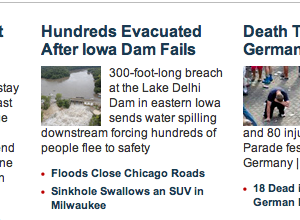 Fox News: Secondary leadFox News had it on their front page, but it was below the captured NATO soldiers story and tied to other rain-related stories.
Fox News: Secondary leadFox News had it on their front page, but it was below the captured NATO soldiers story and tied to other rain-related stories.
